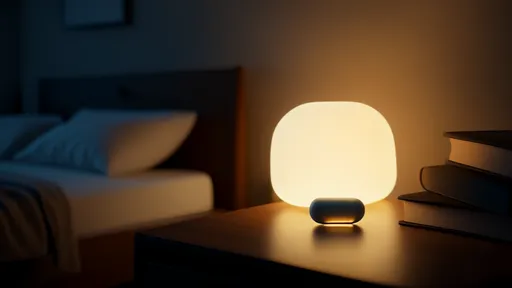In the quiet hours of the night, when sleep remains elusive, many reach for a small, unassuming pill—melatonin. Marketed as a natural sleep aid, melatonin has surged in popularity, becoming a staple in medicine cabinets worldwide. But beneath its reputation as a gentle sleep inducer lies a more complex narrative. Is melatonin the hero it’s made out to be, or does its widespread use mask potential pitfalls?
The allure of melatonin is easy to understand. Unlike prescription sleep medications, which often come with a long list of side effects and risks of dependency, melatonin is perceived as a safer, more natural alternative. It’s a hormone our bodies already produce, secreted by the pineal gland in response to darkness, signaling that it’s time to rest. For those with disrupted sleep cycles—shift workers, frequent travelers, or insomniacs—melatonin supplements promise a way to reset the internal clock without the baggage of stronger drugs.
Yet, the reality of melatonin’s effectiveness isn’t as clear-cut as its marketing suggests. Research on its benefits is mixed. Some studies show modest improvements in sleep onset, particularly for jet lag or delayed sleep phase disorder. Others find little to no significant impact, especially for chronic insomnia. The variability in results may stem from differences in dosage, timing, or individual physiology. What works for one person might do nothing for another, leaving many users in a trial-and-error loop.
Dosing is another area where confusion reigns. Unlike pharmaceuticals, which undergo rigorous testing to determine optimal dosages, melatonin supplements are often sold in amounts far exceeding what the body naturally produces. A typical pill might contain 3 to 10 milligrams, while the body secretes mere micrograms nightly. This discrepancy raises questions about safety, particularly with long-term use. While short-term studies suggest few adverse effects, the consequences of years of high-dose supplementation remain unknown.
Then there’s the issue of regulation—or the lack thereof. In many countries, melatonin is classified as a dietary supplement rather than a medication, meaning it bypasses the stringent oversight applied to prescription drugs. This lack of regulation can lead to inconsistencies in pill potency, with some products containing significantly more or less melatonin than advertised. Contaminants or unlisted additives further complicate the picture, leaving consumers to gamble on the purity of what they’re ingesting.
Perhaps the most troubling aspect of melatonin’s rise is its growing use among children. Pediatricians sometimes recommend it for kids with sleep disorders, but its long-term effects on developing brains are poorly understood. Parents, desperate to help their children sleep, may inadvertently expose them to unknown risks. The trend highlights a broader societal issue: the quick-fix mentality that favors popping a pill over addressing underlying causes of sleep disturbances, such as screen time, stress, or poor sleep hygiene.
Critics argue that melatonin’s popularity reflects a cultural obsession with quick solutions. Instead of tackling the root causes of sleeplessness—whether it’s caffeine consumption, erratic schedules, or anxiety—many turn to supplements as a Band-Aid. This approach may provide temporary relief, but it often fails to foster the lasting habits needed for truly restorative sleep. In this sense, melatonin can become a trap, offering the illusion of control while diverting attention from deeper issues.
That’s not to say melatonin has no place in sleep management. For specific conditions, like jet lag or circadian rhythm disorders, it can be a valuable tool. The key lies in using it judiciously—low doses, short-term—and under professional guidance. But for the average person struggling with occasional sleeplessness, lifestyle changes may offer a safer, more sustainable path. Establishing a consistent bedtime routine, limiting blue light exposure, and managing stress are all proven strategies that don’t come with unanswered questions.
As with many health trends, the truth about melatonin lies somewhere in the middle. It’s neither a miracle cure nor a dangerous scam, but a tool with specific uses and limitations. The real danger may lie in viewing it as a one-size-fits-all solution. Sleep is a complex, deeply personal process, and what works for one person might not work for another. In the quest for better rest, melatonin can play a role—but it shouldn’t be the only actor on the stage.
In the end, the debate over melatonin mirrors larger conversations about health and wellness. In a world that prizes convenience and speed, it’s tempting to seek out simple answers. But true well-being often requires a more nuanced approach—one that balances science with self-awareness, and quick fixes with long-term care. Whether melatonin is a savior or a snare depends less on the pill itself and more on how we choose to use it.

By /Jun 7, 2025

By /Jun 7, 2025

By /Jun 7, 2025

By /Jun 7, 2025

By /Jun 7, 2025

By /Jun 7, 2025

By /Jun 7, 2025

By /Jun 7, 2025

By /Jun 7, 2025

By /Jun 7, 2025

By /Jun 7, 2025

By /Jun 7, 2025

By /Jun 7, 2025

By /Jun 7, 2025

By /Jun 7, 2025

By /Jun 7, 2025

By /Jun 7, 2025

By /Jun 7, 2025

By /Jun 7, 2025

By /Jun 7, 2025